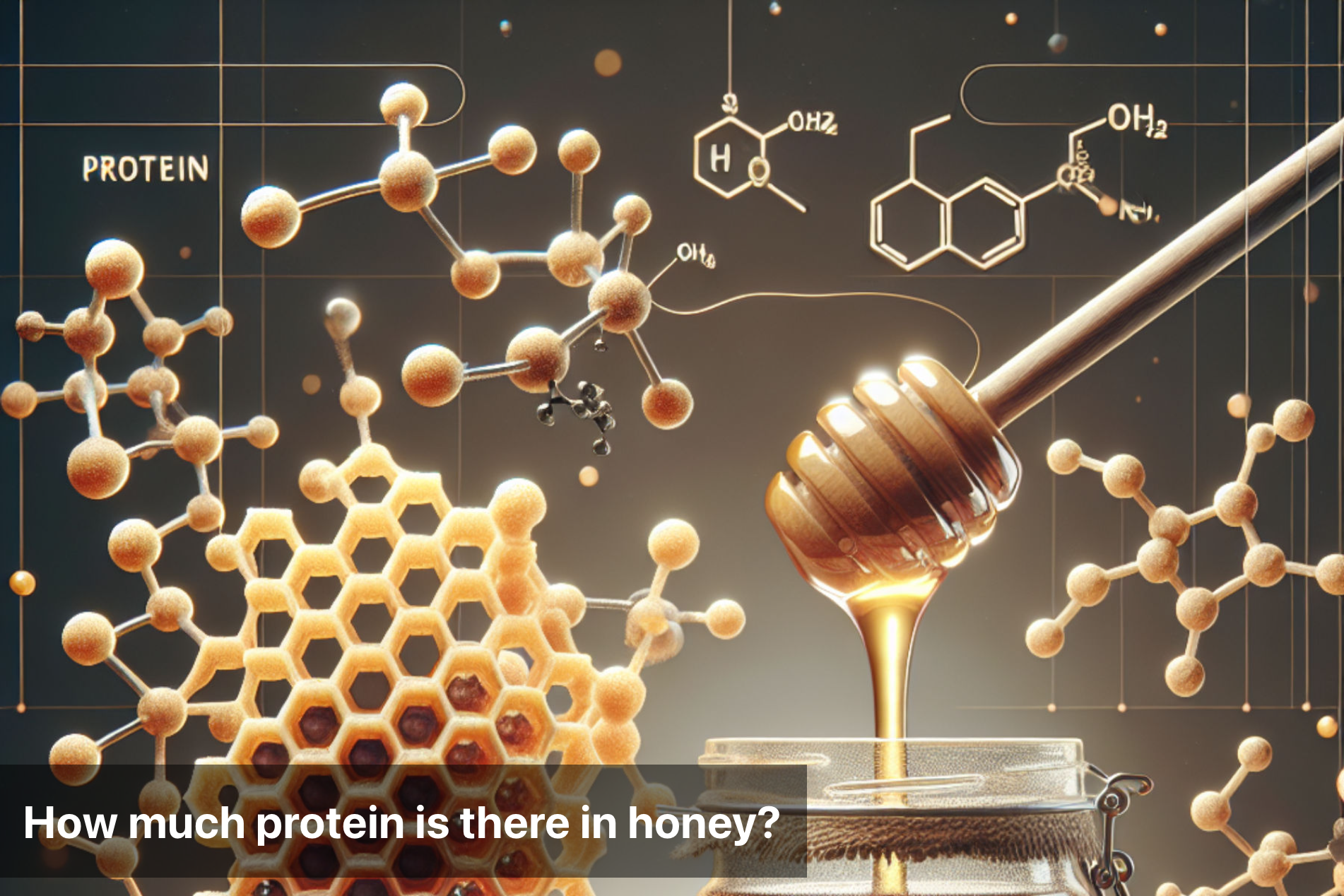
How much protein is there in honey?
Protein is a vital component of a balanced diet, playing a crucial role in various bodily functions, including muscle development and repair. As individuals seek to maintain a healthy lifestyle, understanding the protein content in different foods becomes essential. This knowledge allows for informed dietary choices that align with specific nutritional needs.
When exploring protein sources, one may ponder the protein content in honey. Typically, honey is not primarily known for its protein content; however, it contains various nutrients beneficial for overall health.
While honey is not a significant source of protein compared to foods like meat or legumes, it still contains trace amounts of this macronutrient. Despite being overshadowed by its carbohydrate content, honey provides a small but valuable protein component. Therefore, while honey may not be a primary protein source, its inclusion in the diet can contribute to overall nutrient intake and offer unique health benefits beyond just protein content.

Nutritional Composition of Honey
1 tablespoon (21 grams) of honey contains:
Calories |
64 |
Fat |
0g |
Sodium |
0mg |
Carbohydrates |
17g |
Fiber |
0g |
Sugars |
17g |
Protein |
0.1g |
Potassium |
10.9mg |
Iron |
0.1mg |
Calcium |
1.3mg |
Factors affecting protein content of honey
Processing Methods: Processing techniques such as filtration and heating can impact the protein content of honey. Over-processing may remove some of the pollen and protein present in raw honey.
Bee Species: Different species of bees may produce honey with varying protein levels. Factors such as genetics and foraging behavior can influence the protein content of honey produced by different bee species.
Environmental Conditions: Environmental factors such as climate, soil quality, and weather conditions can affect the availability and quality of nectar and pollen sources, consequently impacting the protein content of honey.
Seasonal Variations: Protein levels in honey may fluctuate throughout the year based on seasonal variations in the availability of flowering plants and trees. Honey harvested during peak flowering seasons may contain higher protein levels.
Beekeeping Practices: Beekeeping practices, including hive management, feeding regimes, and use of supplements, can affect the health and productivity of bee colonies, ultimately influencing the protein content of honey.
Storage Conditions: Improper storage of honey, such as exposure to high temperatures or prolonged storage, can lead to protein degradation and changes in nutritional composition over time.
Processing Duration: The duration and intensity of honey processing can impact its protein content. Minimal processing methods preserve more of the natural components, including proteins, compared to extensive processing techniques.
Ways to incorporate Honey in your diet
Sweetener Substitute: Replace processed sugars with honey in beverages like tea or coffee. It adds a natural sweetness with additional nutrients.
Homemade Salad Dressing: Mix honey with olive oil, lemon juice, and herbs to create a delicious and healthy salad dressing. Drizzle it over fresh greens or use it as a marinade for meats.
Honey Glazed Veggies: Roast vegetables like carrots, sweet potatoes, or Brussels sprouts with a honey glaze. Simply toss them in olive oil and honey before baking for a caramelized, flavorful side dish.
Protein Boost: Add honey to yogurt, oatmeal, or smoothies for a natural energy boost. It not only enhances the flavor but also provides a quick source of carbohydrates for pre or post-workout fuel.
Baking Sweetener: Substitute honey for sugar in baking recipes like cookies, cakes, or muffins. It adds moisture and depth of flavor while reducing the overall refined sugar content of your baked goods. Adjust the liquid and dry ingredients accordingly when using honey as a sweetener.

Protein in Honey: Understanding its Composition and Benefits
The protein content in honey may surprise many individuals who are unaware of this aspect of the natural sweetener. While honey is not typically considered a significant source of protein, it does contain trace amounts that can contribute to one's daily intake. On average, a single serving of honey provides around 0.3 grams of protein, making it a modest but noteworthy addition to the diet.
Incorporating honey as a source of protein in one's diet can be particularly beneficial for those looking to diversify their protein sources beyond traditional foods like meats, dairy, legumes, and nuts. The unique profile of protein in honey, along with its other nutritional benefits such as carbohydrates, vitamins, and minerals, makes it a versatile ingredient that can complement a variety of dishes and snacks.
Moreover, the inclusion of honey as a protein source can be especially advantageous for individuals with dietary restrictions or preferences, as it offers a natural and wholesome alternative to conventional protein-rich foods. Its versatility in both sweet and savory recipes makes it a convenient option for enhancing the nutritional value of meals while adding a touch of natural sweetness.
Overall, while honey may not be a primary protein source, its protein content should not be overlooked, and incorporating it into one's diet can provide a unique and flavorful way to boost overall protein intake.
This Blog post is an initiative by Lo! Foods, to provide accurate and Nutritionist / Doctor approved information related to Health. Lo! Foods is India's leading brand for Everyday Functional Foods. Foods designed for specific Health conditions or Needs. Lo! Foods also runs India's largest range of Low Carb Healthy Cloud Kitchens, under the brand names of Lo!, ProteinChef, ATH (All Things Healthy) and DiabeSmart.















Leave a comment
Your email address will not be published.